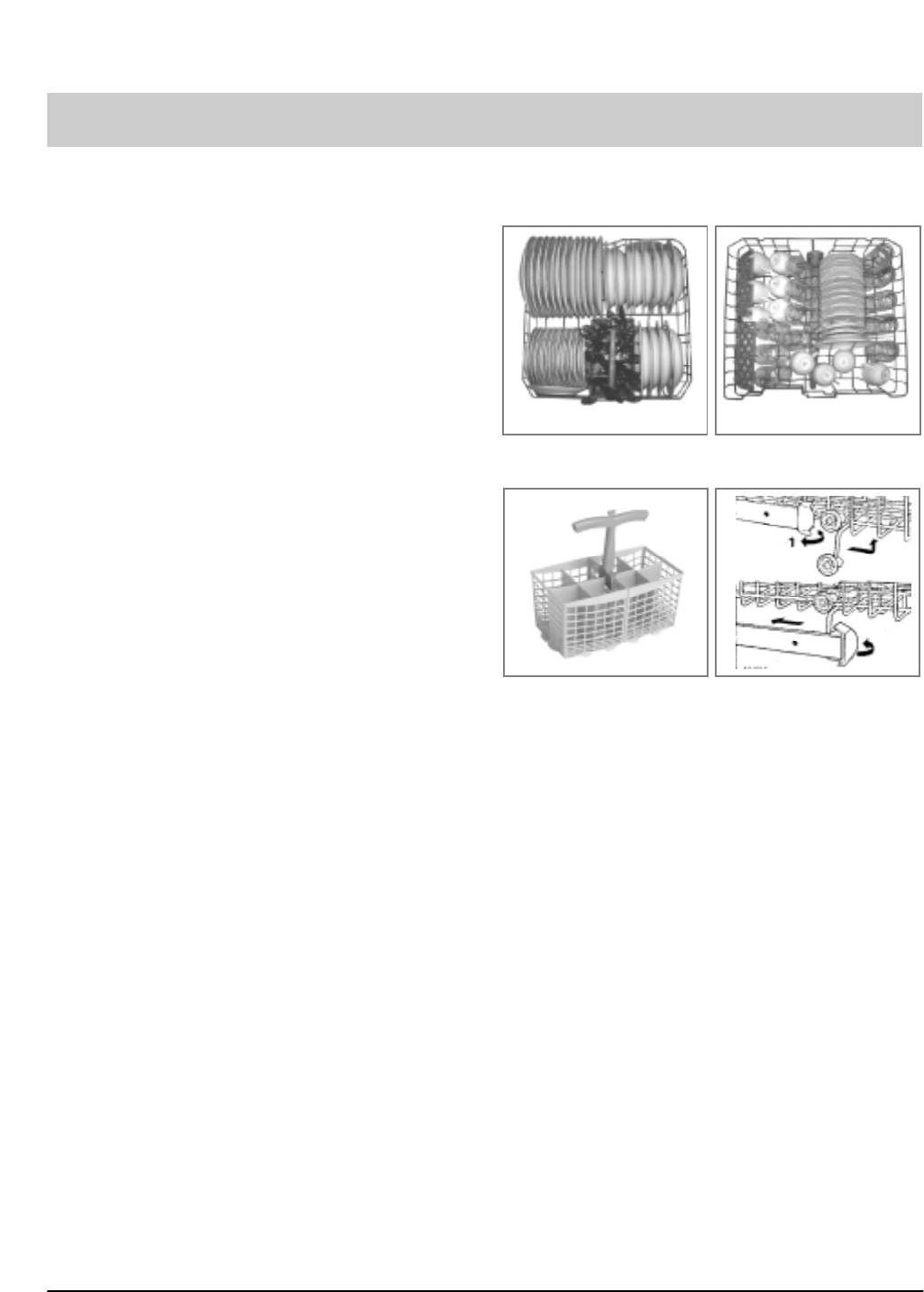
2
1
3
4
Loading the Dishwasher
Lower Rack Upper Rack
Load for 12 Standard Settings
Before placing the dishes in the dishwasher, remove the larger
food particles to prevent the filter from becoming clogged.
If the pots and pans have baked-on food that is extremely hard
to remove, we recommend they are soaked before washing. This
will eliminate the need for extra wash cycles.
Pull out the rack to load the dishwasher.
The lower rack
Place the most difficult to clean items on the bottom rack: pots,
pans, lids, serving dishes and bowls.
It is preferable to place serving dishes and lids on the sides of
the racks in order to avoid blocking the rotation of the top spray
arm.
- Pots, serving bowls, etc. must always be placed face down.
- Deep pots should be tilted to allow the water to flow out.
The upper rack
The upper rack is designed to hold more delicate and lighter
dishes, such as glasses, cups and saucers, plates and small
bowls.
- Position the dishes so that they do not move by the spray of
the water.
To adjust the height of the upper rack, rotate the caps located
on the end of the rack guide rails to the side, remove the rack-
completely and refit using the alternate set of wheels (see fig.D).
Adjust the upper basket to the higher level to allow more height
in the bottom basket for large items.
fig.D
fig.C
.4.
Information on comparability tests implemented in
compliance with AS/NZS 2007
Appliance loaded in accordance with standard specifications.
Example of loaded dishwasher: See fig. A and B.
Capacity: 12 place settings
Comparability programme: NORMAL wash
Rinse-aid setting: 5
Detergent: 25+5g
fig.Bfig.A
Height-adjustable top-basket must be inserted in the uppermost position.
If the comparability tests do not comply fully with AS/NZS 2007, e.g., degree of
soiling, type of dishes
and cutlery, etc., contact the appliance manufacturer before starting the test.














